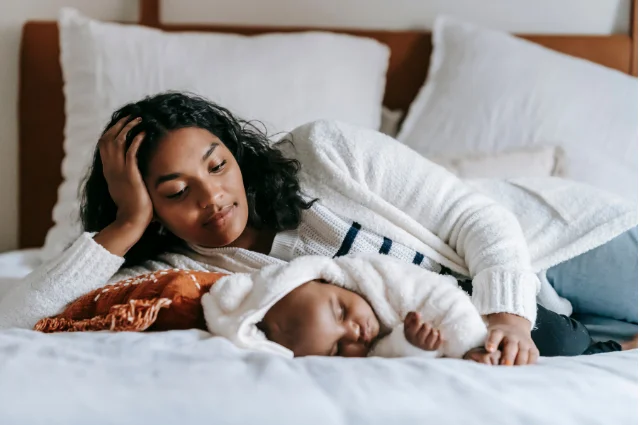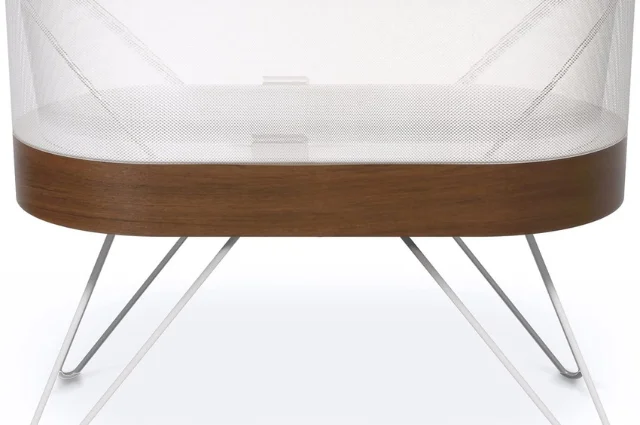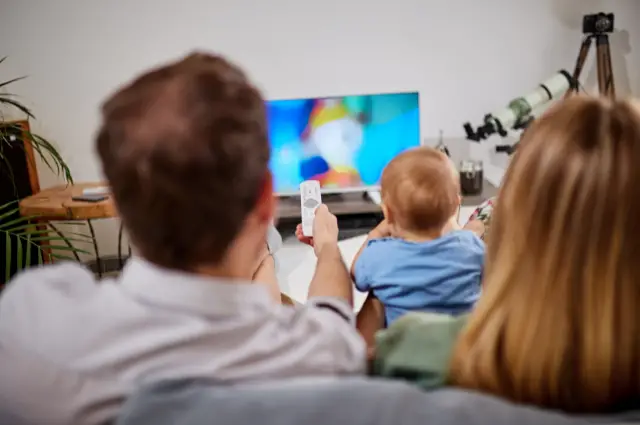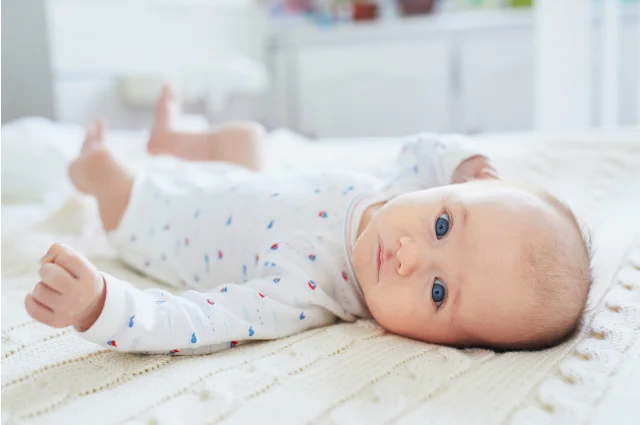When it comes to whether should you be quiet when a baby is sleeping? the answer is a resounding yes! Babies are sensitive sleepers, and their growing brains need uninterrupted sleep to develop to their full potential. Low noise levels enable uninterrupted sleep, support cognitive growth, and encourage a regular sleep schedule. Their sleep cycle can be broken by even slight interruptions, which can make them irritable. So when you see a baby nodding asleep, seize the opportunity to embrace a calm setting. Your little one deserves uninterrupted sleep because this is when their cognitive abilities are being developed. Here is everything you should know if you have wondered “Should you be quiet when a baby is sleeping?”
Can babies sleep through loud noises?
Can newborns actually fall asleep during loud noises? Many parents and caregivers find this topic to be intriguing. Babies are like sleep ninjas; they can drift off even in a noisy environment, but they are still susceptible to being awakened by unexpected noise bursts. Loud noises may not always wake kids up, but they might disrupt their sleep patterns, which can result in shorter naps or sleepless nights. As a result, even while your little one may occasionally nod off amid the noise, it’s still a good idea to keep things calm whenever you can so they may learn to get a good night’s sleep without the distraction of external noise.
At what age do babies stop sleeping through the noise?
In those early months, It almost seemed like they had built-in noise-canceling headphones, right? Well, that’s because newborns have a pretty deep sleep stage. Their sleep is so restorative and essential for their development. However, as your baby reaches around 4 to 6 months of age, you might notice a change. A sudden loud noise or a new sound might cause them to stir or wake briefly. By the time your baby hits 6 to 9 months they becoming more aware of their surroundings, and their sleep is becoming lighter and more easily disrupted by noise.
What noise is best for a baby’s sleep?
For both you and your little one, sleep is extremely valuable, as you know. The appropriate noise can make all the difference in the world when it comes to providing your little one with the ideal sleeping environment. Lullabies, white noise, or even the sound of a heartbeat, according to research, can do wonders for soothing your baby during fussy times and encouraging better sleep. Furthermore, a sound that mimics the calming sensations babies feel when in the womb, fosters a sense of security, and conceals unexpected disturbances is the perfect noise for your baby to fall asleep.
What is too loud for a baby?
The tiny ears on your baby still need special attention because they are growing. In fact, loud noises can damage their hearing! Babies’ hearing is incredibly sensitive—even better than yours. What then, is too loud? Generally speaking, any sound that is louder than 70 dB can be dangerous. A typical conversation is about 60 dB, a vacuum cleaner is about 70–80 dB, and a crying baby can reach about 110 dB, to give you some context. Keep in mind that children are more vulnerable than adults to hearing loss due to noise. It’s probably too loud for your little one if you have to shout to be heard above the noise.
Conclusion
Have you ever wondered “Should you be quiet when a baby is sleeping?” When it comes to your little one, it’s important to use caution when it comes to noise levels. Baby ears are delicate and easily damaged by loud noises. For your baby’s sleep quality and general development, it is essential to prioritize a calm and serene sleeping environment. You’re giving your little one the best chance for restful sleep and good growth by reducing noise interruptions.




